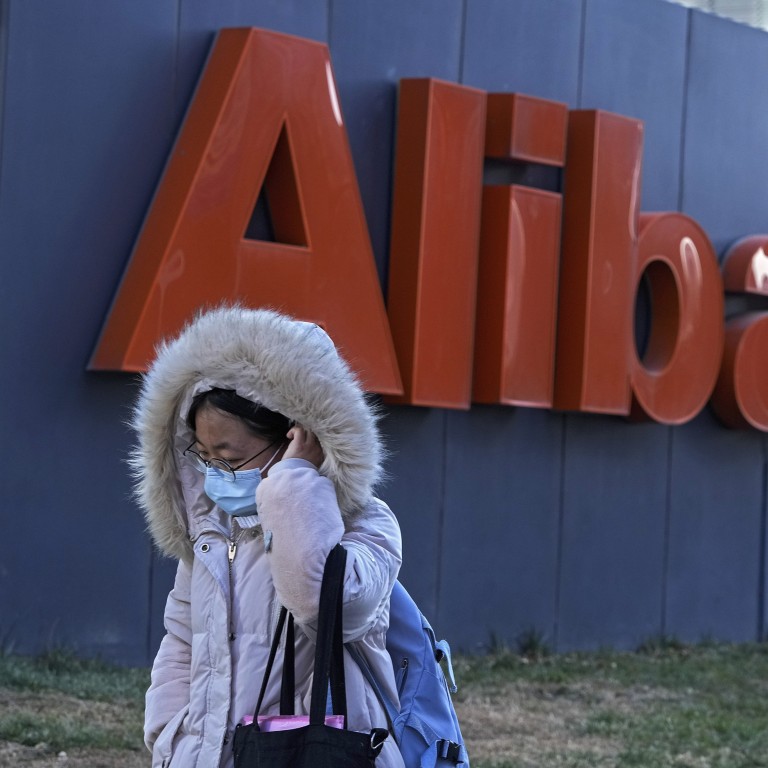
Alibaba’s auto driving lab chief Wang Gang leaves to start his own business
- Wang joined Hangzhou-based Alibaba in 2017 and played a key role in the development of Tmall Genie
- Wang is just the latest scientist to leave a Chinese Big Tech firm, with many choosing to return to academia
Wang Gang, a former vice-president with e-commerce giant Alibaba Group Holding and head of its autonomous driving lab in the DAMO Academy, has quit to start his own business, becoming the latest top scientist to leave a Chinese Big Tech firm.
Alibaba, which owns the South China Morning Post, confirmed Wang’s resignation but declined to comment further. Wang did not reply to a request for comment.
Wang, who focuses on deep learning and its application to computer vision and autonomous driving, intends to start a business that develops cleaning robots and has already raised some funds, according to a report by Chinese media outlet Tech Planet.
Wang joined Hangzhou-based Alibaba in 2017 and played a key role in the development of Tmall Genie, Alibaba’s voice-controlled smart speaker, and autonomous delivery robot Xiaomanlv or “small donkey”. Before joining Alibaba, Wang was an associate professor at Nanyang Technological University in Singapore, leading a research team of around 20 people.
Bilibili follows Alibaba and Tencent in issuing NFTs as ‘digital collectibles’
“I hope to build artificial intelligence products that can have practical application and a big social impact, rather than academic impact,” Wang said in an August interview with Alibaba’s corporate news website Alizila. “The objective of Alibaba’s Damo Academy is to develop products that can be used – so this aligns well with my motivation,” he said at the time.
Wang’s departure follows the decision by Alan Qi Yuan, a former vice-president and AI chief scientist at online payments firm Ant Group, an affiliate of Alibaba, to return to academia at the end of 2021.
Qi, who obtained his PhD from the Massachusetts Institute of Technology and was an associate professor in computer science and statistics at Purdue University before joining Alibaba and Ant, is now the dean of Fudan University’s Artificial Intelligence Innovation and Industry Research Institute in Shanghai.
Min Wanli, another scientist, resigned in June 2019 as vice-president of Alibaba Cloud to start an investment firm that specialises in AI solutions for China’s traditional industries, including agriculture.
China’s tech crackdown moves into new year with fines on Alibaba, Tencent
Alibaba is not alone in seeing the departure of top scientists though.
Li Lei, the director of ByteDance AI Lab, quit last August to join the University of California Santa Barbara’s computer science department as an assistant professor. The lab is responsible for studying and building algorithms that learn and mine knowledge from all kinds of data, one of the keys to ByteDance’s success with its TikTok and Douyin short video apps.
Li’s former colleague Ma Weiying resigned from his vice-president position at ByteDance in 2020 to join Beijing’s Tsinghua University, one of the country’s top schools for engineering and science, as a professor. In July 2020, AI giant Megvii also lost technology leader Wei Xiushen, who was the founding director of Megvii’s research institute in Nanjing city, to Nanjing University of Science and Technology.
Cameron Johnson, an adjunct faculty instructor at New York University and a partner at Shanghai-based Tidal Wave Solutions, said Chinese culture still holds academia in high regard, whereas tech companies have recently faced a public backlash in some areas.
“Working in an academic role allows [these scientists] broader access to many companies, rather than just the one they are working for,” said Johnson. “As academics, they can serve as advisers, board members, angel investors … without the limitations of a non-compete clause when working for a [particular] company.”
Foreign tech companies have also seen the exit of some scientists. In 2018, Google’s AI chief Fei-Fei Li, famous for her work on computer vision, left to return to Stanford University. A year earlier, Andrew Ng, co-founder and head of Google Brain, announced his departure as chief scientist from Chinese search giant Baidu. He later set up the AI education platform Deeplearning.ai and continued to teach at Stanford.


